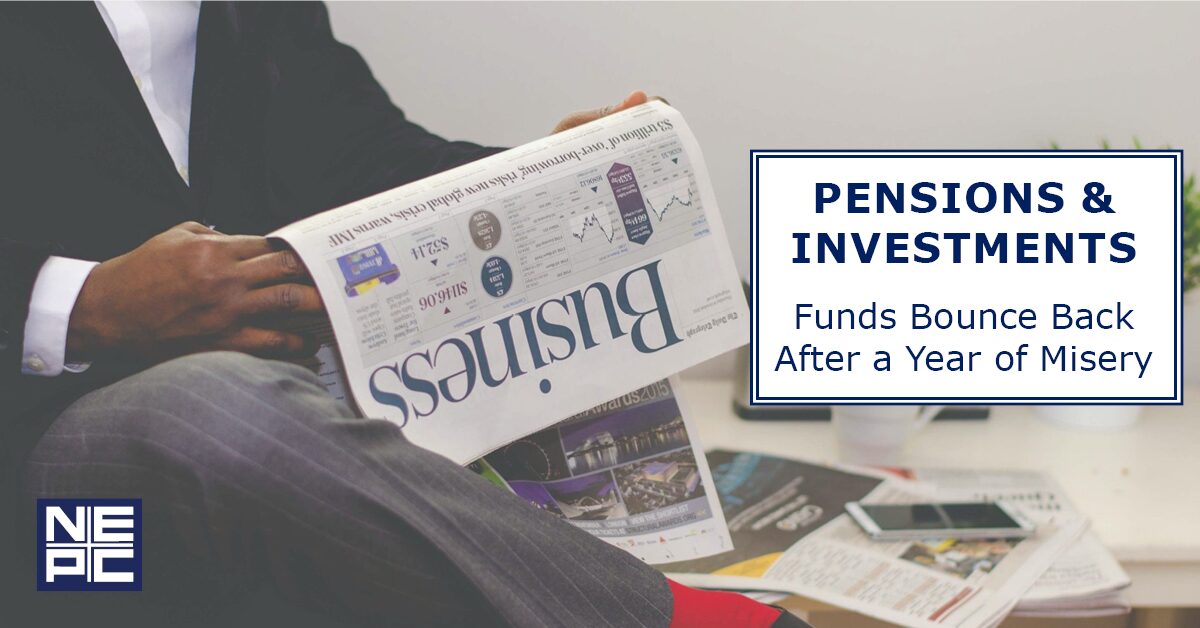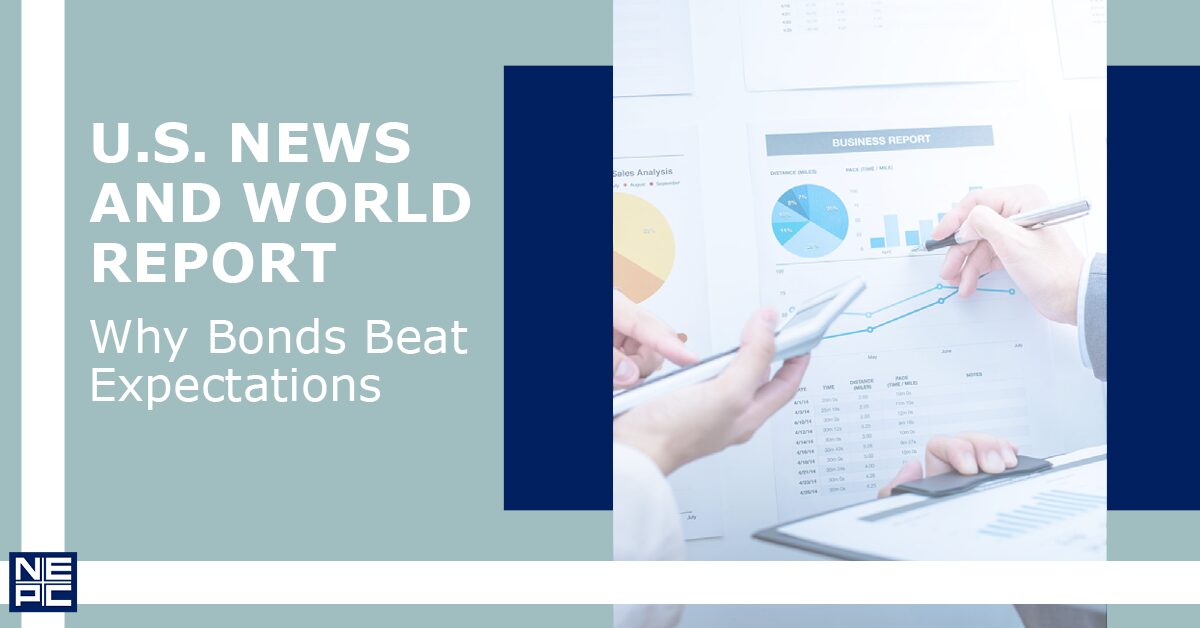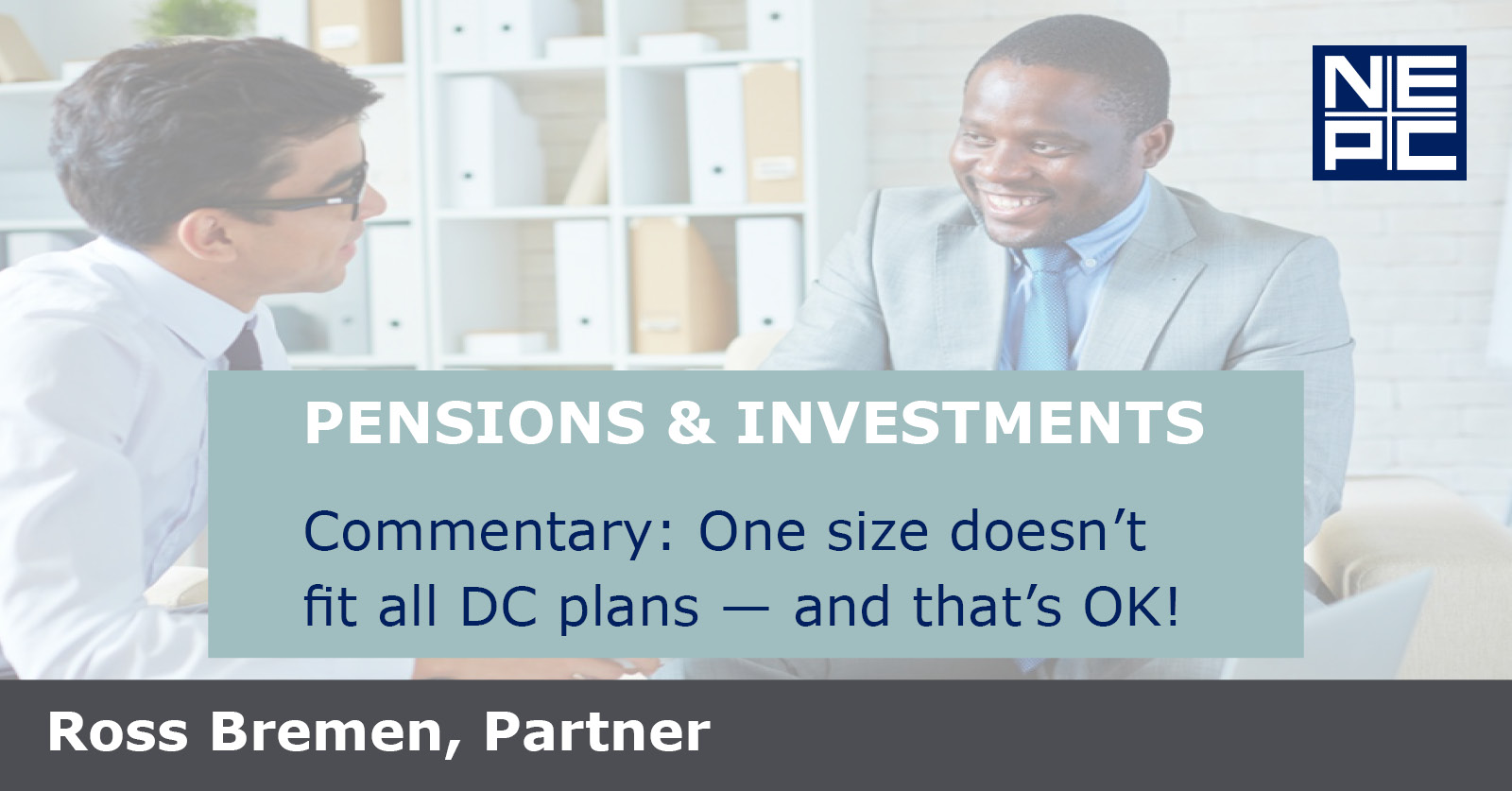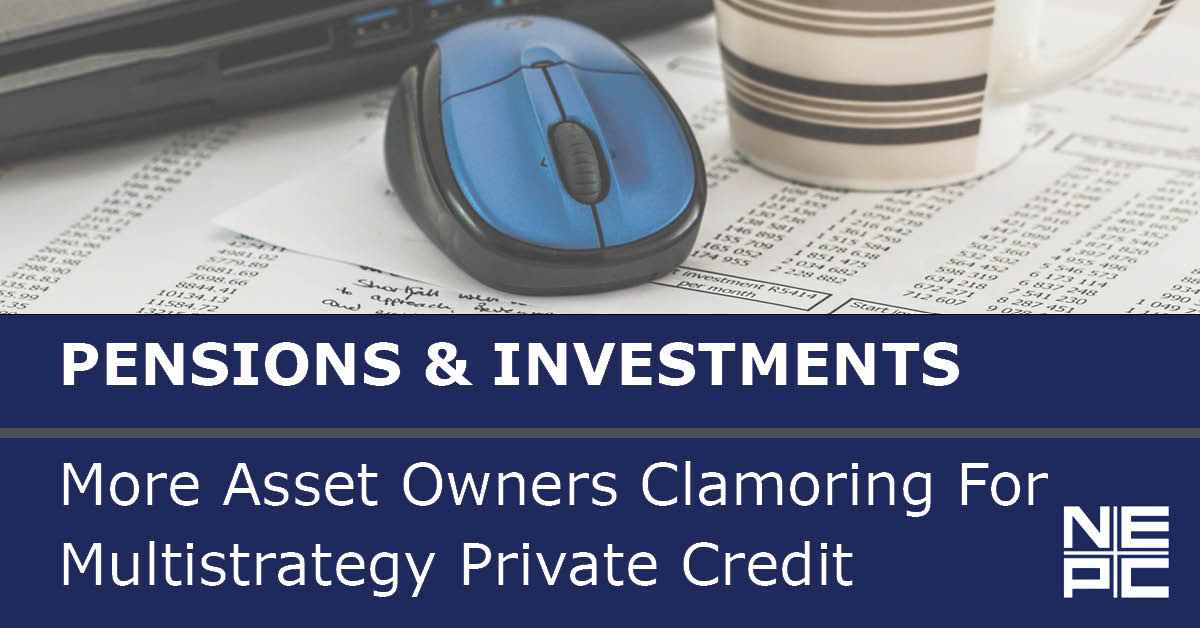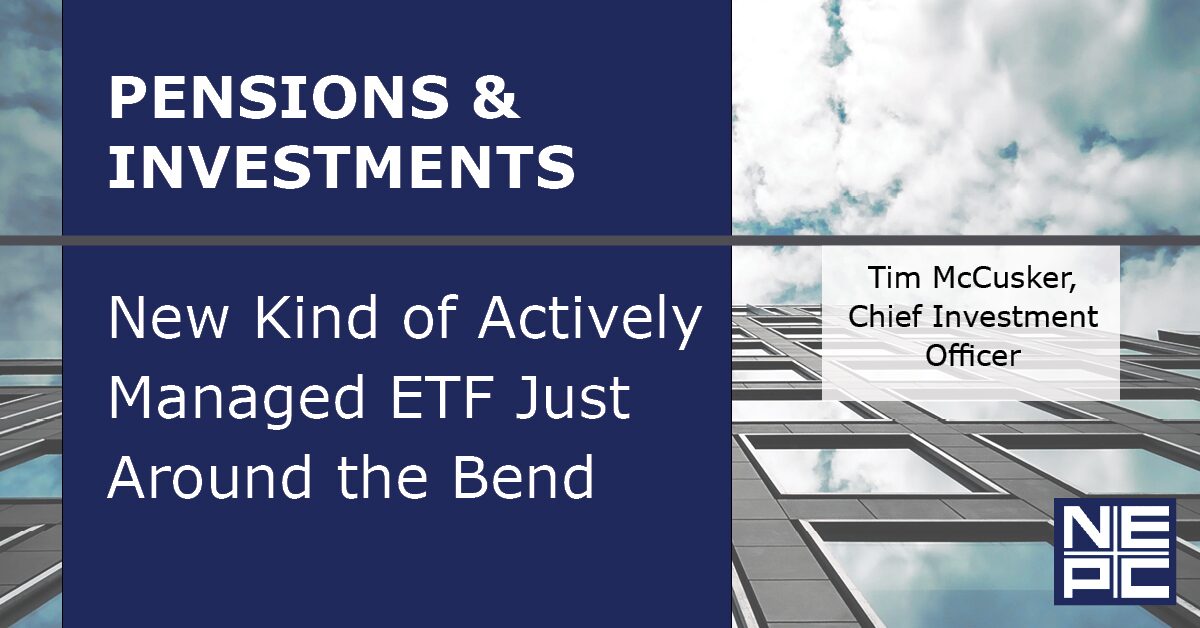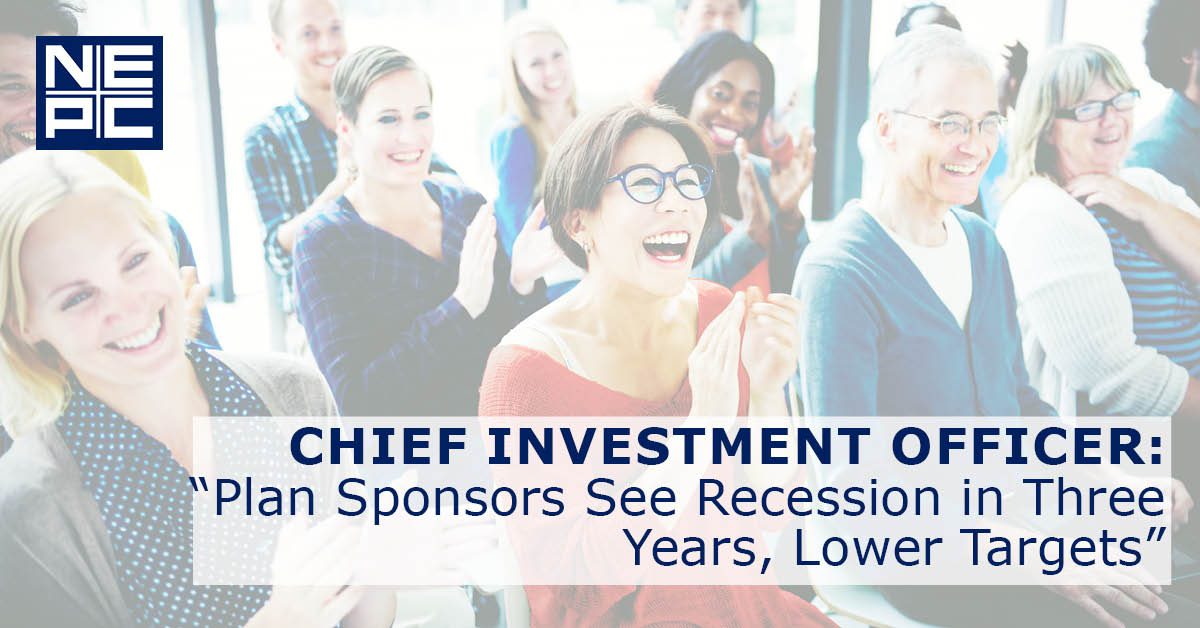Pensions & Investments: Funds Bounce Back After Year of Misery
Margaret Chen said endowments want to be ready for the next downturn.
Pensions & Investments: Outsourcing, More Use of Specialist Managers Part of 2020 To-Do List
Timothy T. Yates Jr. said larger endowments now are in the midst of having serious 'buy- or-build discussions.'
U.S. News & World Report: Why Bonds Beat Expectations
A calmer investing path.
Fixed income can serve to dampen volatility in a portfolio, especially when equity markets show downside volatility. Investors can reasonably expect stocks and bonds to move in different directions, or at least not at the same rates. So far this year, both asset classes are showing gains, although stock returns have outpaced bonds. That's typical in a year when both are in positive territory. "U.S. bonds did better than expected in 2019 as concerns over weak stock markets, a possible imminent recession and trade war worries led investors to bid up bonds, and lowered yields," says Andrew Aran, partner at Regency Wealth Management in Ramsey, New Jersey.
Pensions & Investments: Commentary: One Size Doesn't Fit All DC Plans - and That's OK!
Read Ross Bremen's Op-Ed on PI's site here.
A joint study conducted this fall by NEPC and Pensions & Investments reveals DC plan sponsors are aligned on several important topics, like getting participants into a plan early, saving at sufficient levels and using diversified investments. Beyond these themes, however, we don't see overwhelming adoption of every service and investment opportunity in the market place, and we see diverging views on topics like measuring plan success and decumulation. These types of differences are OK.
Pensions & Investments: More Asset Owners Clamoring for Multistrategy Private Credit
PlanSponsor: Keys to Future Investing Success for Institutional Investors
Chief Investment Officer: Plan Sponsors See Recession in Three Years, Lower Targets
Chief Investment Officer posted an article on the 2019 Defined Benefit Plan Trends Survey.
NEPC survey finds LDI investors have better-funded plans.
A significant majority of corporate and healthcare defined benefit plan sponsors say they expect a recession within the next three years, and have accordingly lowered their long-term return assumptions, according to a survey from investment consulting firm NEPC.
The survey questioned plan sponsors’ economic outlook, use of risk reduction strategies, and how they will change their asset allocation and investment strategies in the coming year. It found that 84% of those polled believe a recession will likely occur during the next three years, half of whom expect a recession in just 12 to 18 months.
Because of these recessionary concerns, 58% of defined benefit plan sponsors are bearish on the stock market, and 63% believe discount rates may be the same or lower over the next 12 months. They are relatively equally divided about what they believe is the greatest threat to their portfolios as 30% named geopolitical tensions, 29% said political uncertainty, and 28% said Federal Reserve action.
The survey indicated that the funded status of plans has improved since 2017 with some 60% of plans having a funded ratio higher than 90% in 2019, up from just 46% two years ago. This is happening in an environment where corporate pensions are experiencing increased costs and falling discount rates.
NEPC said better-funded plans have embraced liability-driven investing (LDI), glide paths, and liability reduction strategies. Approximately 75% of plans with a funded status above 90% have used LDI, and two-thirds have 40% or less of their assets allocated to equity. Among plans that use LDI, 44% have an allocation of 51% or higher, compared to just 37% in 2017, and 9% in 2011.
“The correlation between strong funded status and the use of LDI illustrates that risk management in the form of LDI works to reduce funded status volatility in a declining interest rate environment,” Brad Smith, a partner in NEPC’s Corporate Defined Benefit Group, said in a release. “While the use of LDI has remained consistent with prior years, we’ve found that the allocations to LDI have increased significantly over the past two years and are a key contributor to protecting funded status in this market environment.”
The survey also found that plan sponsors have significantly lowered their long-term return assumptions with one-third of the respondents having a return assumption of 6% or less, compared to just 20% in 2017. The number of plan sponsors with a return assumption of 7.5% or more has declined to 21% from 33% two years ago.
Alternative investment strategies remain popular, according to the survey, with 65% of respondents having an allocation in that category in 2019. Among plan sponsors who are actively investing in alternatives, 40% are in hedge funds, 38% invest in private equity, and 33% allocate to real assets.
The percentage of surveyed plan sponsors incorporating ESG strategies in their portfolio has nearly doubled from 6% in 2018 to 11% in 2019. That interest appears to be waning, however, as only 16% of plan sponsors said they are considering ESG, down from 28% in 2018.
The survey also found the number of plan sponsors who believe they may eventually terminate their plans in the future has nearly doubled in two years. It showed 23% of respondents saying they were unsure if they will stay open, up from 12% in 2017.
About 15% said they are planning a full plan termination, and 35% say it may occur over the next five to seven years. And 22% said they considered plan termination but rejected it, with 78% of those citing annuity purchase costs as the reason not to terminate.

